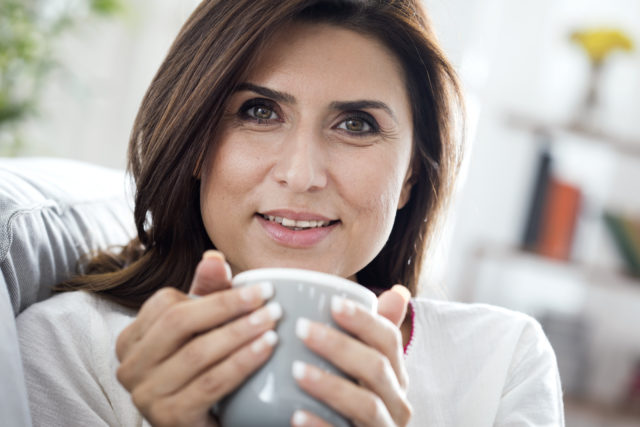 If you have an overactive bladder, making these changes to your diet may help.
If you have an overactive bladder, making these changes to your diet may help.
If you have symptoms of overactive bladder (OAB), you’re not alone. Millions of women experience accidental leaking of urine or a strong, sudden urge to go to the bathroom, especially as they age.
“Overactive bladder (OAB) is defined as uncontrolled loss of urine (urinary incontinence), with or without urgency, in the absence of urinary tract infection or other obvious pathology. A very common condition, with greater than 1 in 7 people suffering with OAB, many OAB symptoms can be improved by simple fluid and dietary changes. The attached article can be a great start for those suffering from OAB from a non-pathologic source. Any further questions, concerns, or persistent symptoms should be directed toward your primary care doctor or urologist.” –Ross T. Cockrell, MD, Urology
While symptoms of overactive bladder are unpleasant, the good news is that you may have some control over your symptoms by modifying your diet. What you drink and eat can make symptoms better – or worse.
To Drink or Not to Drink
You may think you need to limit how much you drink if you have an overactive bladder, but it’s still important to get enough fluids. This prevents dehydration, which can lead to urinary tract infection, constipation and bladder irritation. These all increase the urge to go.
Water should be your go-to beverage. Limit or avoid the following beverages because they may irritate your bladder:
- Caffeinated drinks – Studies show that limiting daily caffeine intake to 100 milligrams may help reduce symptoms of overactive bladder. That’s about the amount in one cup of coffee.
- Alcoholic drinks
- Carbonated drinks
- Artificially-sweetened drinks
- Acidic fruit juices
The best way to get in your daily fill of fluid is to spread it out throughout the day. Sip small amounts at a time and limit how much you drink before bed. Just make sure you drink enough to avoid dehydration. One way to tell if you’re drinking enough is that your urine is pale yellow or almost colorless.
Foods to Avoid
Excess weight puts added pressure on your bladder, so losing weight may help reduce symptoms. To help you lose weight, limit excess sugar and processed foods and fill your plate with vegetables, fruits, whole grains and lean protein-rich foods. A diet rich in fiber from whole foods also helps prevent constipation, which is a known trigger for urinary incontinence.
Some foods that can irritate your bladder and make symptoms worse include:
- Spicy foods
- Salty foods
- Acidic foods, such as tomatoes and citrus fruits
- Chocolate, or any food that contains caffeine
Copyright 2019 © Baldwin Publishing, Inc. All rights reserved.
Health eCooking® is a registered trademark of Baldwin Publishing, Inc. Cook eKitchen™ is a designated trademark of Baldwin Publishing, Inc. Any duplication or distribution of the information contained herein without the express approval of Baldwin Publishing, Inc. is strictly prohibited.
Date Last Reviewed: March 14, 2019
Editorial Review: Andrea Cohen, Editorial Director, Baldwin Publishing, Inc. Contact Editor
Medical Review: Jane Schwartz, RD
Learn more about Baldwin Publishing Inc. editorial policy, privacy policy, ADA compliance and sponsorship policy.
No information provided by Baldwin Publishing, Inc. in any article is a substitute for medical advice or treatment for any medical condition. Baldwin Publishing, Inc. strongly suggests that you use this information in consultation with your doctor or other health professional. Use or viewing of any Baldwin Publishing, Inc. article signifies your understanding and agreement to the disclaimer and acceptance of these terms of use.